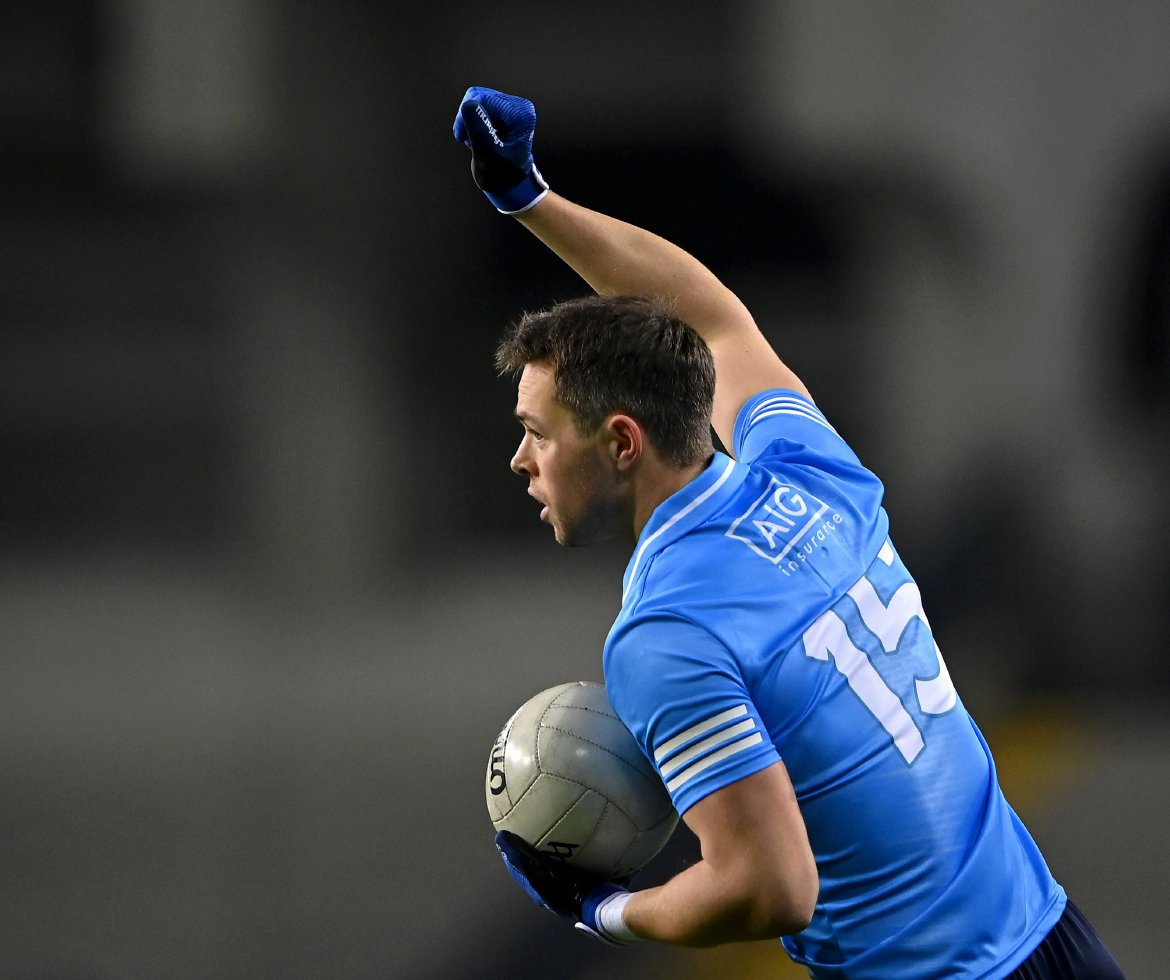BEFORE I get into this week’s article, I wish to take this opportunity to thank the Armagh players and management for an amazing year. Croke Park was up there with anything I’ve witnessed and my three young children, Ethan, Cian and Odhrán, have had a brilliant first year following the Orchard men.
On to the main body of the article –it’s the rules and their application, which I believe are causing issues in the game. I will preface this by stating that I would not be a referee for love nor money, and refereeing my own players in training is the reason I have no hair.
Steps rule
This is possibly the most infuriating of all the rules that I would like changed. I am involved with Dromintee underage teams and, as per rule, we coach four steps.
Now if we look to the county game, it is obvious that this is not implemented to the extent of being farcical. Anecdotally I could talk about when a mark is taken and the player decides to play on, they often are given free range to take as many steps as they want.
This is even more prominent when a player is being fouled and advantaged is being played. Yes there’s a foul but does that mean you can get your daily quota of 10,000 steps in for the craic?
This can be demonstrated with a few Google searches. Showing that it’s not a new phenomenon, Sean Cavanagh scored a goal against Dublin in the championship in 2008, where he took approximately 14 steps. The argument seems to be, ‘ah sure yer man was pulling out of him’. Again, does this give licence to take unlimited steps?
Another example is Mayo’s Tommy Conroy in the third minute of extra-time of the semi-final against Dublin last year in the championship. Tommy took 13 steps before kicking one of his points, and the commentator said: “the referee is playing advantage”. To show I’m not biased, Aidan Nugent took eight steps for his goal against Tyrone in this year’s Qualifier match.
This is increasingly prevalent in club matches and it is hard for the referee to count steps when you take into account the speed of the game, stride distance differentials and a million other things going on.
An extra step or two is forgivable, but when it’s regularly seven, eight or nine steps something has to give. Either it’s more stringently applied or a four-five second rule until a player solos or bounce is introduced.
The black card
This rule is being bent so much that it is now self-defeating. The premise was to clamp out cynical play with a 10-minute sin-binning. However, the clock keeps running even when there is a break in play.
Teams are regularly running down the clock by feigning injuries, particularly head injuries. Referees aren’t to blame here, surely at county level there could be a stop clock on the 10 minutes for breaks in play?
The advanced mark
I detest this rule and believe it is damaging the development of the game.
The rule itself causes confusion. The referee blows the whistle when the forward catches the ball, often about an inch off the ground, and the forward decides if they want to take it or not by raising their hand.
The ‘play to the whistle’ mantra is out the window. The defender hears the whistle, has to decide to go or stay and then has to wait to see if the attacker puts their hand up. This is killing defensive instincts as well as killing the spectacle of a forward winning the ball out in front and taking their opponent on.
Surely the rule has to be the attacker puts their hand up first and then the referee blows their whistle? At club level I’ve witnessed referees not blowing their whistle and players putting their hand up and being milled. I’ve seen the referee blowing their whistle and no mark called, everyone stops and then the forward plays on and walks it into the net. Furthermore, I’ve seen players take a mark from a free kick and the referee awarding it, which is against the rules.
The main flaw I see week in, week out is players calling a mark that aren’t legitimate marks and the opposition stop, as does the player who then plays on five seconds later. This was evident in the Down v Monaghan u-20 Ulster final last year. The Down forward called a mark from a free, which is not legal and Monaghan stopped. Down played on and got what proved to be the winning score.
It’s very hard for players in the heat of battle to process the whistle, the hand raise and the decision the forward makes to play on or not. Tto then throw in if the mark is from a free or not, why is there no advanced mark from a free? Surely you should be rewarding the team that has been fouled. A simple solution for me would be to take the advanced mark out of the game and stop trying to morph into Australian Rules.
READ MORE – Give youth a chance when building a squad. Click here…
Receive quality journalism wherever you are, on any device. Keep up to date from the comfort of your own home with a digital subscription.
Any time | Any place | Anywhere












